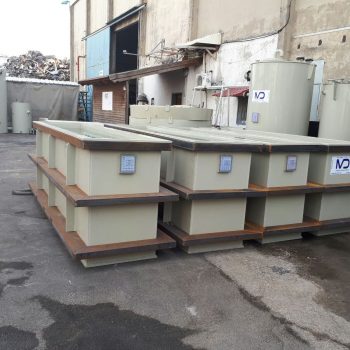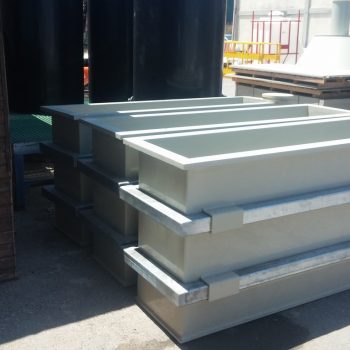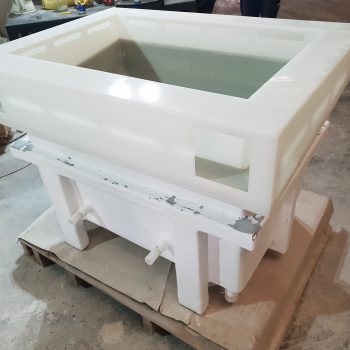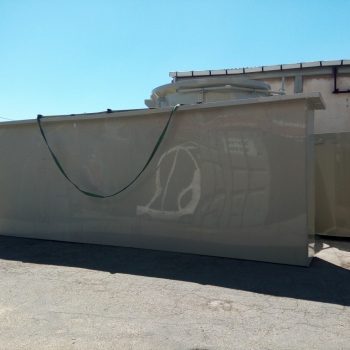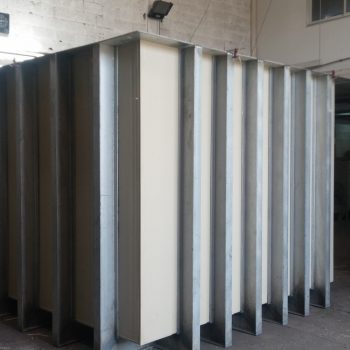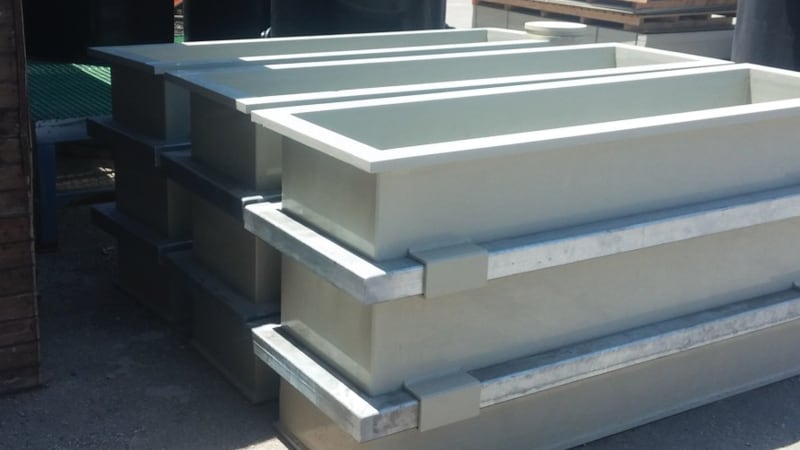
Rectangular Tanks for the Coating Industry
Our company brings to the market extensive expertise in the design, manufacturing, and delivery of rectangular tanks tailored for the coating industry. These tanks are engineered in multiple sizes and configurations, using a selection of high-performance materials — PP (Polypropylene), PE (Polyethylene), PVC (Polyvinyl Chloride), PVDF (Polyvinylidene Fluoride), and FRP (Fiber-Reinforced Plastic).
Materials & Their Benefits
Each material we use is chosen for its specific mechanical, chemical, and operational advantages, ensuring compatibility with different coating processes and chemicals.
| Material | Key Properties | Typical Use-Cases in Coating Industry |
|---|---|---|
| PP (Polypropylene) | Good chemical resistance, good strength at moderate temperatures, relatively lightweight and economical. | Used for tanks handling mild acids, alkalis, and general coating chemistry where temperature and aggressiveness are moderate. |
| PE (Polyethylene) | Excellent toughness, impact resistance, low cost; certain grades (HDPE, LLDPE) offer good chemical resistance but lower limit on temperature. | Suitable for storage or mixing of less aggressive coating liquids, rinses, or wash-down tanks. |
| PVC (Polyvinyl Chloride) | Strong resistance to many chlorine-based or halogenated solutions, stable under many chemical exposures. PVC, particularly U-PVC, can handle certain corrosion environments well. | Often used for tanks that hold chlorine compounds, cleaning agents, or plating bath intermediates. |
| PVDF (Polyvinylidene Fluoride) | High chemical resistance including to strong acids, oxidising agents, very good stability to high temperature, good purity, low permeation. | Best suited for high demand coating lines, aggressive chemicals, processes needing high purity or resistance to harsh environments. |
| FRP (Fiber-Reinforced Plastic) | Composite construction gives high strength-to-weight ratio, excellent corrosion resistance (depending on resin system), flexible to custom shapes, excellent structural rigidity. | Used when tanks must be large, durable, or exposed to harsher mechanical loads, abrasion, or when a dual laminate is required (liner + structural layer). |
Design & Manufacturing Capabilities
- Custom Sizes & Configurations: We offer tanks in a wide range of rectangular footprints, heights, wall thicknesses, and reinforcement options to match space constraints, load requirements, and process flow.
- Material Selection & Compatibility: Based on the chemicals to be stored or processed, temperature range, mechanical stress, and expected lifespan, we advise on the best material or composite structure. E.g., PVDF or FRP for aggressive or high-purity chemical use; PE or PP when conditions are more moderate.
- Manufacturing Methods: Methods include thermoplastic welding or fabrication (for PP, PE, PVC, PVDF) and composite lamination or hand lay-up for FRP, sometimes dual laminate (thermoplastic liner + FRP structural shell) where enhanced chemical and structural properties are needed. These manufacturing choices are made to ensure the tank meets the performance requirements for temperature, stress, chemical exposure and mechanical handling.
Quality Assurance & Testing
We put strong emphasis on quality and safe performance:
- Experienced Professionals: Our team includes engineers and technicians with specific specialization in chemical tank design, materials engineering, and process industry standards.
- 24-Hour Hydrostatic / Water Leak Test: All tanks undergo rigorous water testing for 24 hours before delivery, to ensure there are no leaks and that the tank walls, seams, welds or joints are fully sealed and functionally sound.
- Compliance with Standards: We design in accordance with relevant standards (e.g., for FRP tanks BS 4994 or equivalent, local safety codes), ensuring material certification, structural strength, chemical compatibility, and safety.
- Inspection & Finish: Tanks are inspected for weld integrity, surface finish, dimensions, straightness, flatness of base, alignment of fittings, outlets, inlets, etc. Paint or gel‐coat finishes (if applicable), chemical corrosion protection, and seal compatibility are also ensured.
Applications in the Coating Industry
Rectangular tanks we supply are used for:
- Pretreatment / cleaning baths
- Rinsing tanks
- Coating and finishing baths (electroplating, powder coating, wet painting)
- Storage of coating chemicals or agents
- Wash-down or neutralization baths
Because coating processes often involve aggressive chemicals and precise control of solution purity and concentration, tank material and workmanship are critical.
Idan B Plastics Ltd., a member of the Belsky Group

